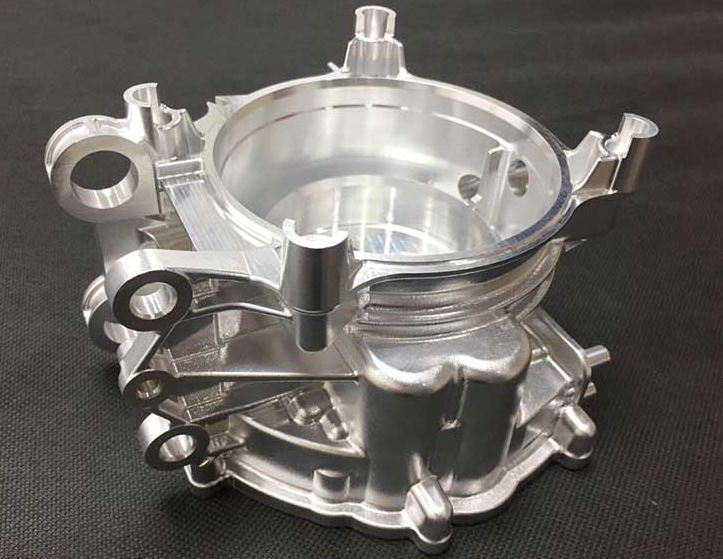The Definitive Guide to Stahl Specialty Company
The Definitive Guide to Stahl Specialty Company
Blog Article
Stahl Specialty Company - Questions
Table of ContentsThe 7-Second Trick For Stahl Specialty CompanyNot known Details About Stahl Specialty Company The Stahl Specialty Company PDFsStahl Specialty Company - TruthsStahl Specialty Company Things To Know Before You Get This
Chemical Comparison of Cast Aluminum Alloys Silicon promotes castability by reducing the alloy's melting temperature and improving fluidness throughout spreading. In addition, silicon adds to the alloy's toughness and put on resistance, making it beneficial in applications where longevity is crucial, such as automotive parts and engine parts.It also boosts the machinability of the alloy, making it less complicated to process into ended up products. By doing this, iron adds to the overall workability of light weight aluminum alloys. Copper boosts electrical conductivity, making it useful in electrical applications. It also boosts rust resistance and includes in the alloy's general strength.
Manganese contributes to the stamina of light weight aluminum alloys and improves workability. Magnesium is a lightweight component that provides stamina and influence resistance to light weight aluminum alloys.
It allows the manufacturing of light-weight parts with outstanding mechanical properties. Zinc improves the castability of light weight aluminum alloys and aids regulate the solidification procedure during casting. It enhances the alloy's stamina and firmness. It is often discovered in applications where complex forms and great details are necessary, such as ornamental spreadings and particular auto parts.
The Best Guide To Stahl Specialty Company
Since aluminum-silicon alloys have great casting homes, high gas homes, easy processes, and excellent deterioration resistance, aluminum-silicon alloys are most frequently utilized in the die-casting industry in the house and abroad. At the exact same time, aluminum-silicon alloys are also reasonably early and widely identified alloys established and used in die-casting. After continual research study and improvement, many of the present global mainstream aluminum-silicon alloys have been finalized and are absolutely nothing more than A356, A360, A380, ADC12, B390, and A413.
The main thermal conductivity, tensile toughness, yield stamina, and prolongation differ. Among the above alloys, A356 has the highest possible thermal conductivity, and A380 and ADC12 have the most affordable.

Stahl Specialty Company for Beginners
In accuracy casting, 6063 is fit for applications where elaborate geometries and high-quality surface area finishes are vital. Instances include telecommunication units, where the alloy's exceptional formability permits for sleek and cosmetically pleasing designs while preserving architectural stability. In a similar way, in the Lighting Solutions sector, precision-cast 6063 components produce sophisticated and efficient illumination components that require elaborate forms and excellent thermal performance.
(https://www.goodreads.com/user/show/184520701-frances-howard)
It results in a better surface coating and far better rust resistance in A360. The A360 exhibits remarkable prolongation, making it perfect for complicated and thin-walled parts. In precision casting applications, A360 is appropriate for sectors such as Consumer Electronics, Telecommunication, and Power Devices. Casting Foundry. Its boosted fluidity allows for elaborate, high-precision parts like smart device casings and communication gadget real estates.

In accuracy spreading, light weight aluminum 413 shines in the Consumer Electronics and Power Equipment sectors. This alloy's premium corrosion resistance makes it an outstanding option for exterior applications, making certain long-lasting, durable products in the discussed markets.
Get This Report about Stahl Specialty Company
Once you have actually determined that the light weight aluminum die casting process is suitable for your task, a crucial following step is choosing on the most appropriate alloy. The light weight aluminum alloy you select will considerably impact both the spreading procedure and the buildings of the end product. Due to this, you need to make your choice thoroughly and take an informed strategy.
Identifying one of the most appropriate aluminum alloy for your application will certainly mean considering a broad selection of qualities. These relative alloy qualities adhere to the North American Die Spreading Association's standards, and we have actually split them right into two classifications. Casting Foundry. The first classification addresses alloy features that affect the production procedure. The second covers attributes influencing the homes of the last product.
The alloy you choose for die casting straight influences several elements of the spreading process, like exactly how simple the alloy is to function with and if it is vulnerable to casting defects. Hot splitting, likewise referred to as solidification splitting, is a normal die spreading issue for light weight aluminum alloys that can cause internal or surface-level tears or cracks.
Fascination About Stahl Specialty Company
Specific aluminum alloys are extra prone to warm cracking than others, and your option must consider this. Foundry. It can harm both the actors and the die, so you must look for alloys with high anti-soldering homes.
Rust resistance, which is currently a significant feature of aluminum, can vary considerably from alloy to alloy pop over to these guys and is an essential particular to take into consideration depending upon the ecological conditions your item will be subjected to. Put on resistance is one more home generally sought in light weight aluminum products and can separate some alloys.
Report this page